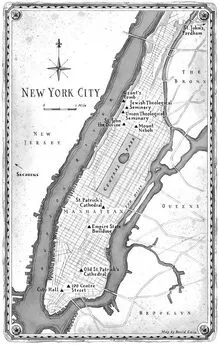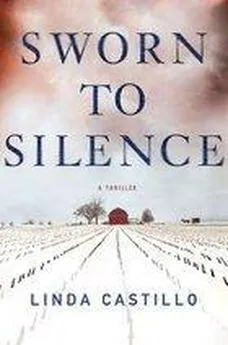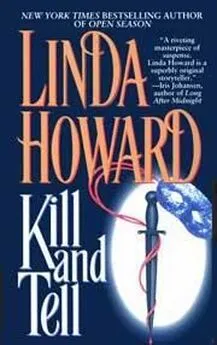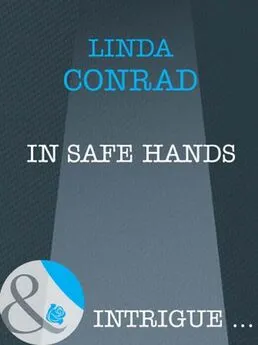Fairstein, Linda - Silent Mercy
- Название:Silent Mercy
- Автор:
- Жанр:
- Издательство:неизвестно
- Год:2011
- ISBN:нет данных
- Рейтинг:
- Избранное:Добавить в избранное
-
Отзывы:
-
Ваша оценка:
Fairstein, Linda - Silent Mercy краткое содержание
Silent Mercy - читать онлайн бесплатно полную версию (весь текст целиком)
Интервал:
Закладка:
“I’d like to be with you.”
“You want to go to your office first?”
“I do.”
“Pick you up there. Figure late morning.”
We were nibbling on breadsticks and antipasti as Adolfo opened a bottle of wine for us.
“There ought to be more information after the story breaks wide,” Mike said. “The guys will still be canvassing the neighborhoods around the churches, talking to Naomi’s neighbors, finding out more about Daniel and whoever he socialized with at work.”
“The autopsy set?”
“In the morning. I’ll be there while you two go to the seminary.”
As always when the three of us segued from the intensity of investigative work to a casual meal together, the conversation would have confused anyone listening in. One of us would think of something that had to do with the murder — in this case, Mike describing the condition of Naomi’s head to Mercer — then would go on discussing Mike’s mother’s health or Mercer’s son’s allergies or the last time I’d been to my ballet class.
I had the sense to pass up espresso, counting on a good night’s sleep before the frenzy of the next day. I dipped my biscotti in Mike’s cup, yawning despite the early hour.
“C’mon, Alex,” Mercer said. “I’ll drop you at your door.”
Mike lived in a tiny studio apartment east of the restaurant. He called it “the coffin,” for its small size and light-starved interior. We left him nursing his coffee and sipping the dregs of the fine bottle of wine that Giuliano had sent over to us. He was more likely to work out the day’s demons at the bar than in his bed.
Mercer drove me the short distance to my building. My father’s trust fund afforded me the luxury of a beautiful co-op apartment twenty floors above the racket of the city streets, secured by two doormen on duty twenty-four hours a day. I was grateful for the comfort and peace of mind my home provided me, as well as its convenience to the office.
“Say hi to Vickee. We’re overdue for a dinner. And tell Logan that I’ll be taking him to the zoo on the first nice spring day.” I leaned over and kissed Mercer on his forehead.
“Will do. Rest up and I’ll see you tomorrow.” He waited and watched through the glass windows that fronted the driveway, making sure that Vinny and Oscar greeted me, gave me my mail and dry cleaning, and held the elevator open for me.
I locked the door of my apartment, tossed my jacket onto a chair, went into the bedroom, and hit the playback button on my machine while I put away the day’s clothes. Most of my friends called and texted to my cell, but Luc enjoyed leaving intimate messages to be played alone when I came home after a grueling day. The six-hour time difference often meant that we couldn’t speak frequently while I was working, but it was comforting to me to hear his voice and know that he was sound asleep in Mougins, after a busy night in the restaurant, just as I would be settling in.
“Bonsoir, ma princesse.” His deep, calm voice and the elegant French accent were instantly soothing to me. I had left Luc a voice mail explaining that a new case had interrupted the day and I would be hard to reach. He understood the demands of my schedule now in a way he had not when we first met, and respected the fact that my work took me away from friends and family, inconveniently and unpredictably.
Although he made fun of my schoolgirl French, my comprehension had only improved in our time together, so the messages were all in his language. I hung up my suit while he told me about friends who had visited the restaurant that evening, and about his motorcycle trip to Cannes in the afternoon to buy some of my favorite things — perfumes, a scarf, and a few surprises — for his trip to New York on Saturday. I slipped off my underwear and threw it in the hamper, wrapping a bath towel around me while I listened to his promises to make me forget all the trouble I’d seen this week while we were together.
The second message was from Joan Stafford, one of my closest girlfriends. Although she never hesitated to call my cell — and actually preferred it when she caught me at a crime scene or police precinct — she was excited that she and her husband, Jim, would be coming to the city for dinner with us this weekend. Joan, a novelist and playwright, and Nina Baum, my Wellesley roommate who lived in Los Angeles and was an entertainment lawyer with one of the big studios, were the two closest friends outside my orbit of prosecutors and cops who covered my back daily. I spoke to them each almost every day, my lifelines to a trusting world that wasn’t punctuated by violence and victimization.
“Alex? Pick up. Why aren’t you home yet? Call me,” Joan said. “You’ve got to tell me everything about this case. It’s so gruesome.”
Luc again. He was sleepless and restless, and I could hear the rustle of his sheets in the background as he changed position to get more comfortable while he rambled on. It amused and excited me, and his visit gave me something to look forward to while immersed in such turmoil.
“Don’t you dare call Joan before you call me. I’ll bet she’s looking for you.” It was Nina Baum, at her most protective. “I’m worried about you. Heard the news on the radio and assume this could be your case. Take care of yourself, sweetie. Have a nightcap and try to separate your work from your dreams. G’night.”
I ran a steaming hot bath, poured in my scented oils, and agreed with Nina that a nightcap was in order. Ten minutes of letting some of the stress soak out of me worked wonders. I toweled off, put the drink on my bedside table, and stretched out under the covers. I usually read for half an hour before turning out the lights, but I didn’t think George Eliot was up to keeping me awake.
I slept soundly. When the landline rang at 4:47 in the morning, I reached for the receiver, almost knocking over the cocktail that I had thankfully left unfinished before dozing off.
Mike’s cell number was displayed on the caller ID. “I know there’s a perfectly good reason you’re calling me at this hour.”
“What is it exactly you told me that you said to Battaglia, about where the body was found and whether it could be connected to the priest you’ve got on trial?”
“What’s this — a ‘refresh your recollection’ wake-up call?”
“Not really. What’d you say?”
“That it would be a different story — or something like that — if the victim had been dumped on the doorstep at St. Patrick’s Cathedral instead of a Baptist church.”
“Now you’re beginning to scare me.”
“Why? Are you drunk?”
“No. But there’s a second body.”
I sat bolt upright and switched on the light with my free hand. “A woman? You think it’s our guy? Was she decapitated?”
“Yeah, a woman. Her throat was slit. Looks like she just bled out on the site. Really fresh kill. You either got a crystal ball or the DA has a point. She was dumped at the doorstep of St. Pat’s.”
Adrenaline moved faster than the speed of light. The questions tumbled out of my mouth before I could complete them. “Was she sexually assaulted?” I asked, though it hardly seemed to matter. “Mutilated. Was she mutilated too?”
“The perp cut out her tongue, Coop. He slit her throat and he took her tongue.”
EIGHTEEN
“THERE’Sgot to be witnesses,” I said. “You can’t kill someone on the steps of the most famous cathedral in America, no matter what time of night, when Fifth Avenue is as well-lit and heavily trafficked as a shopping mall.”
Mike was waiting for me in the driveway, throwing the clutter from the front seat of his department car into the rear. “You get any sleep?”
“Yes, thanks. Six hours. And you?”
“A few. Here’s the tabs.”
I unfolded the New York Post, never tasteful in its insatiable appetite for crime stories. The headline ran: UNHOLY AX — and beneath it, in bold print, A DIVINE PLAN? I skimmed the first few paragraphs and found the expected buzzwords—“headless torso,” “flaming flesh,” “baptism by fire,” and “St. John’s divine resting place.”
I tossed the paper over my shoulder, into the back with Mike’s junk. “Now the newsroom boys have got a full twenty-four to work on something irreverent for the new girl. They live for this.”
He handed me a hot cup of black coffee. “There’s probably a stale bagel in one of those bags at your feet.”
“Which bag is yesterday’s and which is last week’s? I’m afraid I’d break my teeth on it. What do you know about her? Any ID?”
“Starkers. No clothing, not even a blanket this time.”
“You didn’t answer me. What about witnesses?”
The first major American cathedral built in Gothic Revival style was once a city landmark visible for miles. Now its twin spires were surrounded by the modern office complexes — including Rockefeller Center — that pressed upon it from every direction.
“Old St. Pat’s, Coop. The original one.”
“I don’t know what you’re talking about.”
The cathedral that had been the centerpiece for the city’s Catholic population since 1879, and the scene of great ceremonial splendor for visitors of every faith — or no faith — from all over the world, was just twenty blocks from my home. But Mike was speeding east to go downtown on FDR Drive.
“Two hundred years old. 1809. New York’s first cathedral church.”
“Where?”
“So close to your office they can probably hear you sounding off when someone lies to you and you go ballistic. The corner of Mott and Prince Streets. NoLita.”
North Little Italy — NoLita, bordering on SoHo — was less than ten blocks from the courthouse.
“You know it?” I asked.
“’Course I do.”
Mike had been raised in a devout family, attended Fordham University after parochial school, and though not a regular churchgoer, had an abiding trust in his religion that carried him through the incomprehensible depravity of our work. His widowed mother and her siblings had steeped him in the knowledge of all things Catholic, about which he loved to lecture me.
“How did I miss it all these years?” The drive was empty and Mike was cruising down the center lane.
“It must have been grand when it was built two hundred years ago, but once the neighborhood deteriorated, brick and mortar walls were put up to protect it from vandalism. You’ve probably seen it, but didn’t know what was behind the walls.”
“And it’s still active?”
We had passed the United Nations building, and the earliest glimmer of light reflected from all the glass of the Secretariat onto the East River. The city was beginning to wake up and shed the eerie quiet of the still night, although only a few tugboats were moving on the choppy waterway.
“The Irish and Italian congregants have long given way to the Dominicans and Chinese, but it’s still active.”
“You know anything else about this girl you’re not telling me?”
“Quit it, Coop. We’ll be there in five. You know all I got.”
The lights on the Manhattan and Brooklyn Bridges danced above the crossing cars and trains as we sped toward them.
“You think Battaglia will really try to connect this to me?”
“We’ll know the minute he demands to put a bodyguard on your ass.”
“That could be you. We’re working together anyway.”
“Been there. Never doing that again.”
“What’s the part you didn’t like?”
Mike took his eyes off the road and grinned at me. “Think of a better question.”
Читать дальшеИнтервал:
Закладка:










